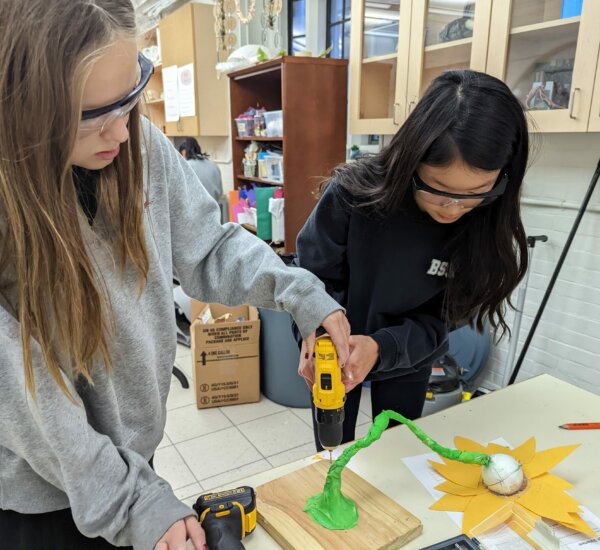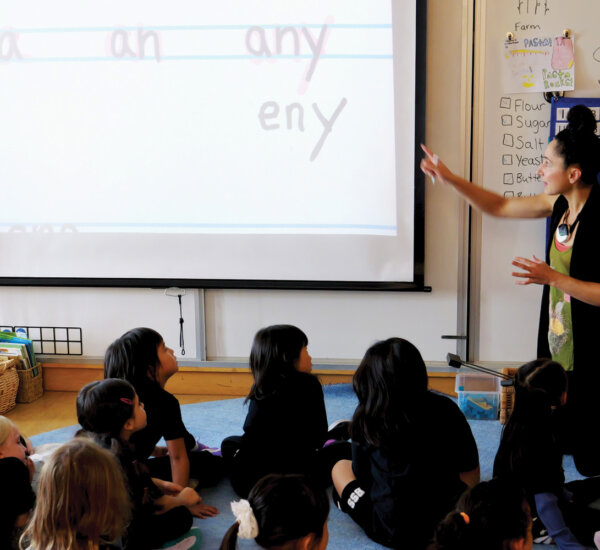The Grade 11 AP English course examines the writing process so that students can learn from and implement peer and teacher feedback. The result? Students develop a growth mindset and improve their skills as stronger, more effective communicators.
Becoming a good writer – or a good anything – requires self-discipline, ownership and deep reflection. It requires listening to feedback and the willingness to apply it to one’s work. For the Grade 11 AP English Language and Composition classes, teachers Ms. Jodi Rice and Ms. Heidi Meirovitz focused the course so students would enhance these skills.
Every unit, the class reviewed mentor texts (writing examples that reflect the focus and strategies of each unit), completed practice pieces (such as essays), received feedback from their teachers and peers and finally, wrote a reflection about their growth. Over time, students created a portfolio of work. At any point, they could return to a previous task and improve it based on new learning and feedback.
AP English challenged them to fine tune their methods in producing quality writing. By being cognizant of the writing process, the students made strategic writing choices and supported their claims with evidence.
With defined guidelines, students formed small groups where readers discussed the writer’s piece while the writer noted feedback. Some writers were asked to strengthen their claims through structural changes, while other writers were encouraged to consider their audience and purpose. “You need to hear how people receive your work and then adjust accordingly,” explains Ms. Rice. “I think that’s a really important lesson for them. Students learn that what they compose in their head may not be clear to someone else, and they need to make sure that it is.” After their initial group sessions, the students recognized the importance of the feedback structure. It was clear to both teachers and students that keeping their audience in mind resulted in better writing.
The teachers say that the structure for AP English at BSS has helped their students develop a growth mindset. “Writing is not perfect,” explains Ms. Meirovitz. “It’s a process and it takes time. If you don’t do it the way you want the first time, there will be so many opportunities throughout the course to show me other ways you can do it.”
“And what do you learn from having done it wrong?” adds Ms. Rice. “What if you can acknowledge what the mistakes are, and then figure out what it is you need to do to ingrain a new habit or look at it from a different perspective?”
The format of this course has empowered students to reflect critically on previous pieces and apply style and writing conventions that are new to them. “Focusing on the writing process has allowed me to establish a greater connection between the lessons and material we cover in class, as well as my own writing pieces,” says student Jordan M.
Whether communicating a scientific discovery or writing a novel, Grade 11 AP English students have developed lifelong skills and strategies that prepare them for university success and responsible civic engagement.



